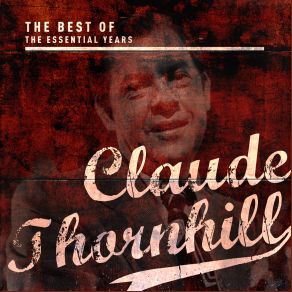Best of the Essential Years: Claude Thornhill
Download links and information about Best of the Essential Years: Claude Thornhill by Claude Thornhill. This album was released in 1958 and it belongs to Jazz genres. It contains 24 tracks with total duration of 01:16:41 minutes.

|
|
|---|---|
| Artist: | Claude Thornhill |
| Release date: | 1958 |
| Genre: | Jazz |
| Tracks: | 24 |
| Duration: | 01:16:41 |
| Buy it NOW at: | |
| Buy on iTunes $3.99 | |
Tracks
[Edit]| No. | Title | Length |
|---|---|---|
| 1. | Under the Willow Tree | 3:08 |
| 2. | Portrait of a Guinea Farm | 3:16 |
| 3. | Hungarian Dance No. 5 | 2:42 |
| 4. | Arab Dance | 4:25 |
| 5. | La Paloma (Grey Dove) | 4:31 |
| 6. | I Get the Blues When It Rains (With Fran Warren) | 2:43 |
| 7. | Donna Lee | 3:05 |
| 8. | I Knew You When (With Buddy Hughes) | 3:21 |
| 9. | The Doll Dance | 2:53 |
| 10. | Buster's Last Stand | 2:55 |
| 11. | A Sunday Kind of Love (With Fran Warren) | 3:24 |
| 12. | There's a Small Hotel | 3:21 |
| 13. | Autumn Nocturne | 3:11 |
| 14. | Where Or When | 3:01 |
| 15. | O Sole Mio (My Sunshine) | 2:49 |
| 16. | Loch Lomond (With Maxine Sullivan) | 2:57 |
| 17. | Let's Call It a Day | 3:14 |
| 18. | Yardbird Suite | 3:21 |
| 19. | Robbins' Nest | 3:17 |
| 20. | Träumerei (Dreaming) | 2:50 |
| 21. | Polka Dots And Moonbeams | 3:19 |
| 22. | Early Autumn (With Fran Warren) | 2:55 |
| 23. | Snowfall | 2:58 |
| 24. | Anthropology | 3:05 |
Details
[Edit]These bouncy yet generic big band tracks were the last that Claude Thornhill made for a major label. By this time, his prime band now a decade behind him, Thornhill was mostly content to tread water with a conventional dance band that fed off the waning embers of the swing era for aging jitterbuggers who still liked to go to ballrooms. The band sounds energetic enough, purveying standards and an occasional Thornhill original, with the leader contributing repeated echoes of his descending "Snowfall" lick. But the brooding originality of the Gil Evans-period band is gone. Except for Thornhill's piano and an occasional throwback like "Sleepy Serenade" and a pro-forma "Snowfall," they sound much like any other dance band of the '50s, even attemping the cha cha at one unfortunate point. Which is presumably what Decca thought the public, if not posterity, wanted then. ~ Richard S. Ginell, Rovi